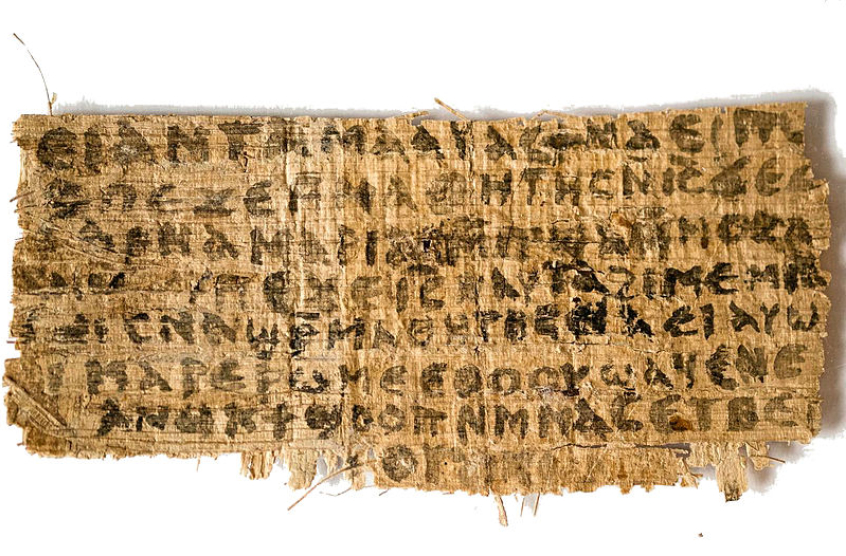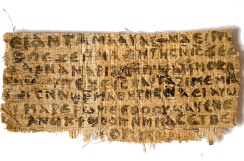
The authenticity of an ancient papyrus known as the "Gospel of Jesus' Wife" has been brought into question as questions surrounding its origins remain unanswered, according to Living Science.
The business-card sized fragment of papyrus, which appears to be part of a larger text, was revealed to the world in 2012 by Prof Karen King of Harvard Divinity School.
The papyrus contains a line that reads "Jesus said to them, 'My wife...'" and "she will be able to be my disciple". It also references "Mary", which has been interpreted as referring to Mary Magdalene.
King claimed to have obtained the papyrus in 2011 from an anonymous owner who said they had bought it from Hans-Ulrich Laukamp on 12 November 1999.
A handwritten note in the contract claims that Laukamp acquired the Papyrus "in 1963...in Postdam (East Germany)".
Yet the Live Science website has claimed it has evidence which suggests it is highly unlikely Laukam could have obtained it when and where it is claimed he did.
Rene Ernst, the lawyer who represents Laukamp's estate, has disputed the claims that he ever owned the papyrus.
Laukamp lived in West Berlin in 1963, a time in which West Berliners were forbidden to travel to East Berlin. Ernst also said he had no interest in antiques and did not collect them. Any attempt to travel east would have put him at risk of imprisonment and possible execution if he were caught with a suspicious document.

If he did obtain it when it says he did, he would have had to be willing to risk his life for it.
Live Science suggests an alternative account. Laukamp was the owner of a tool manufacturing company called the American Coporation for Milling and Boreworks, with a factory in Berlin and an office in Florida.
Publicly available records claim it employed scientists, engineers and tradespeople; Live Science suggests they would have been capable of producing a forgery.
In the period leading up to the year Laukamp apparently sold the papyrus, records show he invested in a new factory in Berlin and bought a new house in Venice, Florida. Live Science suggests the forgery might have been undertaken for money.
The authenticity of the signature is to be tested, and will help clarify further.
Claims of forgery are supported by academics' claims that poorly formed letters, unusual grammar and syntax point to a modern day counterfeit.
King, however, suggests that if it is a forgery it is extremely sophisticated, as carbon dating has dated the papyrus to around 741 AD.
Writing in the Harvard Theological Review, she said: "The lack of information regarding the provenance of the discovery is unfortunate since, when known, such information is extremely pertinent.
"Given that the provenance of the discovery of small Coptic papyrus fragments is frequently unknown, however, the lack is neither unusual nor decisive for the question of dating.
"While we can wish for strong evidence, such as an inscribed date or provenance established by professional archaeological excavation, arguments from silence based on these deficiencies are not determinative of the question one way or the other."
However, she added: "In my judgment such a combination of bumbling and sophistication seems extremely unlikely.
"Further research or the development of new methods may offer determinative evidence, but for now, I would judge the weight of evidence to fall on the side of dating the Gospel of Jesus' Wife as a material artefact to antiquity, probably the seventh to eighth centuries."















